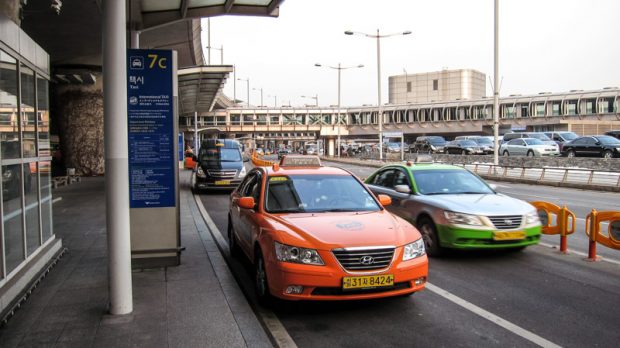Seoul’s ‘international taxis’ running empty
“International taxies” dedicated to overseas tourists are wasting time and millions of won in taxes because each cab in the Seoul city business is moving fewer than one customer a day, according to reports.
The city has invested 580 million won ($514,000) a year in operating 366 international taxies, half private and half corporate, since 2009. But according to the daily Hankyung, of Seoul’s 13.57 million foreign tourists last year, only about 94,000 used the service ― 0.7 passengers per taxi a day.
Among reasons behind the service’s poor performance, lack of promotion stands out. While tourists use smartphone apps to help them explore the city, international taxies have been neglected by the city’s tourism agencies, including the Korea Tourism Organization and Seoul Tourism Organization, only advertising the service in brochures at airports.
Limo Taxi, a call-taxi app that connected users to the service, went bankrupt in January 2016 after just a year, after its stagnant market performance scared away investors.
A Japanese visitor said she saw nothing about international taxies on city-run apps, while another visitor complained he “never knew about such rides,” according to the report.
An agency the city commissioned to operate the service said it once tried to produce a TV ad with an expat TV star but the city rejected the idea. This led to suspicions the service, launched by former mayor Oh Se-hoon, was deliberately shunned for political reasons.
“If we promote international taxies on apps, other taxi drivers will fiercely protest,” a Seoul city official said.
Korean taxi drivers’ heavy dependence on a built-in automated interpreter is another obstacle that discourages foreigners. In many cases, drivers refuse to take foreigners due to the language barrier.
Taxies in Incheon were equipped with a real-time interpretation service in 2011, which the city ended in 2015 after hosting the Asian Games a year before. It supported seven languages. A state-run service in English, Chinese and Japanese replaced it. But the move has not been popular with taxi drivers who are critical of the limited number of languages. They say they have not seen many foreign passengers since the games and are concerned every time they encounter foreigners.
“With the PyeongChang Winter Olympics looming next year, it seems an educational session on the current ARS system is necessary for all taxi drivers in Korea, especially aged workers with weak communication skills with foreigners,” a driver said. (The Korea Times)
























































